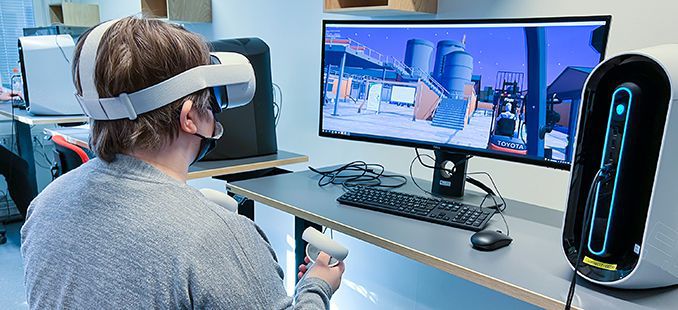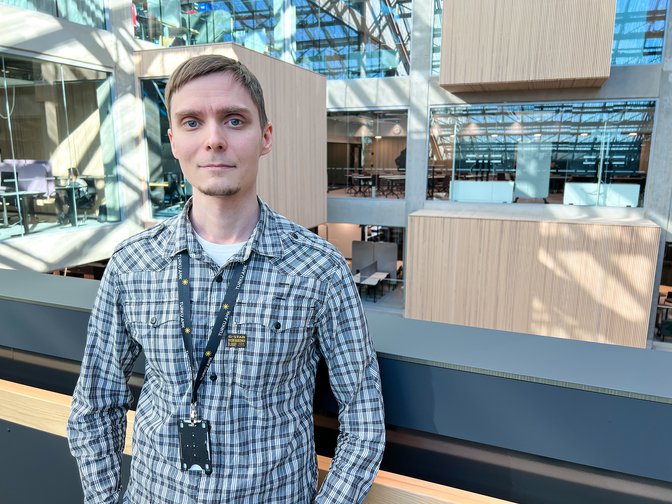
The metaverse is already here! Turku University of Applied Sciences has developed a multi-user virtual forklift training application
The metaverse, the next iteration of the internet, is all the rage right now. Turku University of Applied Sciences has taken a leap into the metaverse and developed virtual training applications that accommodate multiple users.
Text and photos: Martti Komulainen
It is already possible to get a driving licence for a forklift virtually. Unlike simulator training, taking the test virtually is not tied to a certain place. All you need is a computer, the application, a virtual headset and controllers.
Virtual single-user training applications have long been developed at Turku University of Applied Sciences together with ADE Oy and Kiwa company. Some, such as the forklift application, have already been certified.
Training in a situation with several people working on different tasks would make it more challenging and closer to real life. A forklift driver has to know what a crane driver does and take into account other variables in the operating environment.
Metaverse – hype or momentum also develops business applications
The metaverse is all the rage right now. It can mean slightly different things for different people and user groups. It is the next level of the virtual world, consisting of virtual spaces with multiple users.
– Is the metaverse hype or momentum? asked Mika Luimula at the Turku Tech Week event held in March. Luimula is the Principal Lecturer of Game Technology and leader of the Futuristic Interactive Technologies (FIT) research group at Turku University of Applied Sciences.
According to Mika Luimula, most of the current development work for the metaverse is targeted at the consumer market. Turku University of Applied Sciences has seen the opportunities offered by the metaverse in education and business, especially in the technology industry, but also to a wider extent.
Luimula’s definition of the metaverse highlights realism: in addition to communication between several users, important elements include hands-on work and real-life integration created by various kinds of sensor data.
Virtual training environment for port operations
Turku University of Applied Sciences has developed a multi-user virtual application for forklift training as part of the Smart Terminals (SMARTER) project funded by Business Finland. In the training environment, teacher avatars with a voice connection train their avatar students in a realistic environment. AI enables immediate feedback on performances.

The main architect and developer of the application has been Project Manager Timo Haavisto, who also has a background in the international game industry. He envisions that the future of the application includes an entire port operations entity with related training features. The virtual space could be used for preliminary lectures and practical training.
Other metaverse applications can be imagined wherever companies collaborate with several actors on many different functions whose coordination is being developed or looked into.
In addition to the port environment with different areas of operational training (forklift, rescue operations, cranes), one training environment could be a shipyard.
The metaverse can also bring new types of collaboration to creative industries. Turku University of Applied Sciences is also developing applications for health care education.
Principal Lecturer Luimula thinks that Turku has an excellent opportunity to profile itself as a specialist in the b2b market in the metaverse development work. Shipyard company Meyer is a good example of demand that has been extensively identified in the Turku region. Luimula also promises to be ready when Meta (previously Facebook) gets in contact for recruiting experts and launching the company’s metaverse development operations in Finland.
